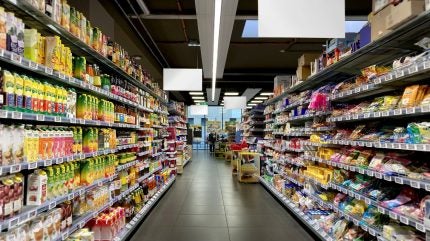
The world’s 30 largest food and beverage manufacturers are selling products in low-income countries that are less healthy than those in richer markets, an NGO report has claimed.
The Global Access Nutrition Index published by Netherlands-based non-profit organisation Access to Nutrition Initiative (ATNi) evaluated more than 52,000 products that it said represented “23% of the global market”.

Discover B2B Marketing That Performs
Combine business intelligence and editorial excellence to reach engaged professionals across 36 leading media platforms.
The index, ATNi’s fifth and which it claimed to be the “largest yet”, said the companies it assessed are adopting better nutrition standards but insisted significant gaps remain.
The NGO said “product portfolio healthiness” was lower in low-income countries, which it claimed indicated “disparities in product offerings across different markets and income groups”.
The ATNi index analysed 52,414 products marketed by companies including Nestlé, PepsiCo and Mondelez using the Health Star Rating (HSR) system in place in Australasia.
Against that system, which not all of the 30 companies assessed use, only 31% met the “healthier threshold”, ATNi said, accounting for 34% of the combined sales of the companies in 2022.

US Tariffs are shifting - will you react or anticipate?
Don’t let policy changes catch you off guard. Stay proactive with real-time data and expert analysis.
By GlobalDataThe HSR system ranks products on a scale of one to five, with a score above 3.5 considered a healthier option.
According to ATNi, the index revealed “overall food product healthiness” scored lower in low- and lower middle-income countries (at a mean HSR of 1.8) than in high-income countries (at a mean HSR 2.3), with portfolios skewed toward less healthy options.
A spokesperson for Nestlé said: “Nestlé contributes every day to good nutrition globally, including delivering close to 128 billion servings of affordable products with micronutrient fortification to help close specific nutrient gaps in developing countries. We take pride in our diverse portfolio and have committed to grow our sales of more nutritious foods, as well as guiding people towards more balanced diets.”
In April, a report published by Zurich-based NGO Public Eye and the International Baby Food Action Network (IBFAN) claimed Nestlé added sugar and honey to certain brands of infant formula and breakfast cereals in poorer countries, a practice “not evident” in Europe.
This report was based on an analysis of 150 Nestlé products sold in “lower-income countries”.
The results determined that “almost all” the Cerelac branded infant cereals examined contained added sugar, amounting to an average of almost 4g per serving. The highest was detected in the Philippines at 7.3g.
The ATNi report, meanwhile, said more companies are setting targets to enhance the healthiness of their portfolio by using Nutrient Profiling Models (NPMs) to classify products as ‘healthier’.
However, there have been only “marginal improvements” the NGO said.
According to the index, 30% of assessed companies now use an internationally recognised NPM to report on the healthiness of their product portfolios, with 20% using it to report the overall percentage of global sales.
The report also found that no company has a policy to completely prohibit marketing unhealthy foods to children under 18 years across all channels, as recommended by the World Health Organization.
ATNi executive director Greg Garrett said: “‘Health is wealth.’ We know this is true, but most food companies have not yet placed nutrition as core to their business. There is progress, but our findings show overall subpar performance and weaknesses in the market.”





